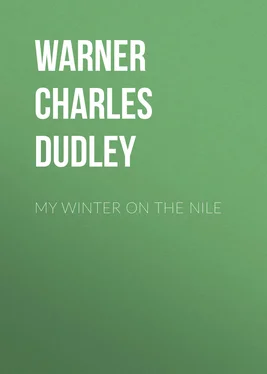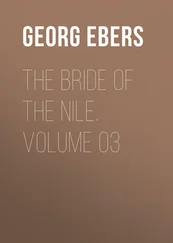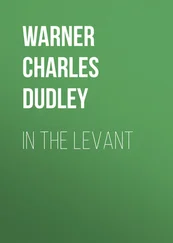Charles Warner - My Winter on the Nile
Здесь есть возможность читать онлайн «Charles Warner - My Winter on the Nile» — ознакомительный отрывок электронной книги совершенно бесплатно, а после прочтения отрывка купить полную версию. В некоторых случаях можно слушать аудио, скачать через торрент в формате fb2 и присутствует краткое содержание. Жанр: Путешествия и география, История, foreign_edu, foreign_antique, foreign_prose, на английском языке. Описание произведения, (предисловие) а так же отзывы посетителей доступны на портале библиотеки ЛибКат.
- Название:My Winter on the Nile
- Автор:
- Жанр:
- Год:неизвестен
- ISBN:нет данных
- Рейтинг книги:5 / 5. Голосов: 1
-
Избранное:Добавить в избранное
- Отзывы:
-
Ваша оценка:
- 100
- 1
- 2
- 3
- 4
- 5
My Winter on the Nile: краткое содержание, описание и аннотация
Предлагаем к чтению аннотацию, описание, краткое содержание или предисловие (зависит от того, что написал сам автор книги «My Winter on the Nile»). Если вы не нашли необходимую информацию о книге — напишите в комментариях, мы постараемся отыскать её.
My Winter on the Nile — читать онлайн ознакомительный отрывок
Ниже представлен текст книги, разбитый по страницам. Система сохранения места последней прочитанной страницы, позволяет с удобством читать онлайн бесплатно книгу «My Winter on the Nile», без необходимости каждый раз заново искать на чём Вы остановились. Поставьте закладку, и сможете в любой момент перейти на страницу, на которой закончили чтение.
Интервал:
Закладка:
The name of the handsome dragoman who walked with us through the bazaars was, naturally enough, Ahmed Abdallah. He wore the red fez (tarboosh) with a gay kuffia bound about it; an embroidered shirt without collar or cravat; a long shawl of checked and bright-colored Beyrout silk girding the loins, in which was carried his watch and heavy chain; a cloth coat; and baggy silk trousers that would be a gown if they were not split enough to gather about each ankle. The costume is rather Syrian than Egyptian, and very elegant when the materials are fine; but with a suggestion of effeminacy, to Western eyes.
The native bazaars, which are better at Cairo, reveal to the traveler, at a glance, the character of the Orient; its cheap tinsel, its squalor, and its occasional richness and gorgeousness. The shops on each side of the narrow street are little more than good-sized wardrobes, with room for shelves of goods in the rear and for the merchant to sit cross-legged in front. There is usually space for a customer to sit with him, and indeed two or three can rest on the edge of the platform. Upon cords stretched across the front hang specimens of the wares for sale. Wooden shutters close the front at night. These little cubbies are not only the places of sale but of manufacture of goods. Everything goes on in the view of all the world. The tailor is stitching, the goldsmith is blowing the bellows of his tiny forge, the saddler is repairing the old donkey-saddles, the shoemaker is cutting red leather, the brazier is hammering, the weaver sits at his little loom with the treadle in the ground—every trade goes on, adding its own clatter to the uproar.
What impresses us most is the good nature of the throng, under trying circumstances. The street is so narrow that three or four people abreast make a jam, and it is packed with those moving in two opposing currents. Through this mass comes a donkey with a couple of panniers of soil or of bricks, or bundles of scraggly sticks; or a camel surges in, loaded with building-joists or with lime; or a Turkish officer, with a gaily caparisoned horse impatiently stamping; a porter slams along with a heavy box on his back; the water-carrier with his nasty skin rubs through; the vender of sweetmeats finds room for his broad tray; the orange-man pushes his cart into the throng; the Jew auctioneer cries his antique brasses and more antique raiment. Everybody is jostled and pushed and jammed; but everybody is in an imperturbable good humor, for no one is really in a hurry, and whatever is, is as it always has been and will be. And what a cosmopolitan place it is. We meet Turks, Greeks, Copts, Egyptians, Nubians, Syrians, Armenians, Italians; tattered derweeshes, “welees” or holy Moslems, nearly naked, presenting the appearance of men who have been buried a long time and recently dug up; Greek priests, Jews, Persian Parsees, Algerines, Hindoos, negroes from Darfoor, and flat-nosed blacks from beyond Khartoom.
The traveler has come into a country of holiday which is perpetual. Under this sun and in this air there is nothing to do but to enjoy life and attend to religion five times a day. We look into a mosque; In the cool court is a fountain for washing; the mosque is sweet and quiet, and upon its clean matting a row of Arabs are prostrating themselves in prayer towards the niche that indicates the direction of Mecca. We stroll along the open streets encountering a novelty at every step. Here is a musician a Nubian playing upon a sort of tambour on a frame; a picking, feeble noise he produces, but he is accompanied by the oddest character we have seen yet. This is a stalwart, wild-eyed son of the sand, coal-black, with a great mass of uncombed, disordered hair hanging about his shoulders. His only clothing is a breech-cloth and a round shaving-glass bound upon his forehead; but he has hung about his waist heavy strings of goats’ hoofs, and those he shakes, in time to the tambour, by a tremulous motion of his big hips as he minces about. He seems so vastly pleased with himself that I covet knowledge of his language, in order to tell him that he looks like an idiot.
Near the Fort Napoleon, a hill by the harbor, we encounter another scene peculiar to the East. A yellow-skinned, cunning-eyed conjurer has attracted a ring of idlers about him, who squat in the blowing dust, under the blazing sun, and patiently watch his antics. The conjurer himself performs no wonders, but the spectators are a study of color and feature. The costumes are brilliant red, yellow, and white. The complexions exhaust the possibilities of human color. I thought I had seen black people in South Carolina; but I saw a boy just now standing in a doorway who would have been invisible but for his white shirt; and here is a fat negress in a bright yellow gown and kerchief, whose jet face has taken an incredible polish; only the most accomplished boot-black could raise such a shine on a shoe; tranquil enjoyment oozes out of her. The conjurer is assisted by two mites of children, a girl and a boy (no clothing wasted on them), and between the three a great deal of jabber and whacking with cane sticks is going on, but nothing is performed except the taking of a long snake from a bag and tying it round the little girl’s neck. Paras are collected, however, and that is the main object of all performances.
A little further on, another group is gathered around a storyteller, who is reeling off one of the endless tales in which the Arab delights; love-adventures, not always the most delicate but none the less enjoyed for that, or the story of some poor lad who has had a wonderful career and finally married the Sultan’s daughter. He is accompanied in his narrative by two men thumping upon darabooka drums, in a monotonous, sleepy fashion, quite in accordance however with the everlasting leisure that pervades the air. Walking about are the venders of sweets, and of greasy cakes, who carry tripods on which to rest their brass trays, and who split the air with their cries.
It is color, color, that makes all this shifting panorama so fascinating, and hides the nakedness, the squalor, the wretchedness of all this unconcealed poverty; color in flowing garments, color in the shops, color in the sky. We have come to the land of the sun.
At night when we walk around the square we stumble over bundles of rags containing men who are asleep, in all the corners, stretched on doorsteps, laid away on the edge of the sidewalk. Opposite the hotel is a casino , which is more Frank than Egyptian. The musicians are all women and Germans or Bohemians; the waiter-girls are mostly Italian; one of them says she comes from Bohemia, and has been in India, to which she proposes to return. The habitués are mostly young Egyptians in Frank dress except the tarboosh, and Italians, all effeminate fellows. All the world of loose living and wandering meets here. Italian is much spoken. There is little that is Oriental here, except it may be a complaisance toward anything enervating and languidly wicked that Europe has to offer. This cheap concert is, we are told, all the amusement at night that can be offered the traveler, by the once pleasure-loving city of Cleopatra, in the once brilliant Greek capital in which Hypatia was a star.
CHAPTER III.—EGYPT OF TO-DAY
EGYPT has excellent railways. There is no reason why it should not have. They are made without difficulty and easily maintained in a land of no frosts; only where they touch the desert an occasional fence is necessary against the drifting sand. The rails are laid, without wooden sleepers, on iron saucers, with connecting bands, and the track is firm and sufficiently elastic. The express train travels the 131 miles to Cairo in about four and a half hours, running with a punctuality, and with Egyptian drivers and conductors too, that is unique in Egypt. The opening scene at the station did not promise expedition or system.
Читать дальшеИнтервал:
Закладка:
Похожие книги на «My Winter on the Nile»
Представляем Вашему вниманию похожие книги на «My Winter on the Nile» списком для выбора. Мы отобрали схожую по названию и смыслу литературу в надежде предоставить читателям больше вариантов отыскать новые, интересные, ещё непрочитанные произведения.
Обсуждение, отзывы о книге «My Winter on the Nile» и просто собственные мнения читателей. Оставьте ваши комментарии, напишите, что Вы думаете о произведении, его смысле или главных героях. Укажите что конкретно понравилось, а что нет, и почему Вы так считаете.












